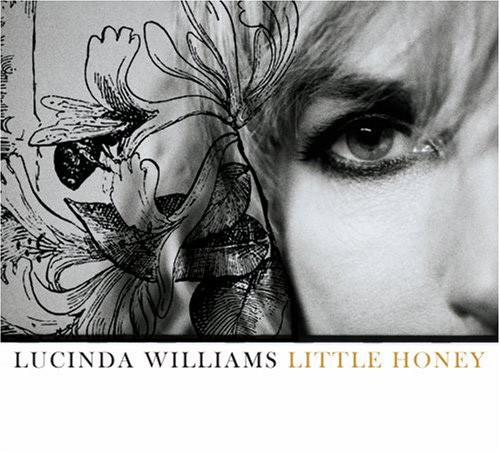Lucinda Williams ALBUM: âÄúLittle HoneyâÄù LABEL: Lost Highway Records Lucinda WilliamsâÄô voice is an escapistâÄôs best accomplice. With her crooning in the background, itâÄôs easy to forget that youâÄôre dusting the living room plants or folding underwear. Routine dishwashing becomes a dangerous task as knives and forks have a way of stabbing at those who have drifted away with the music. Daily undertakings, like washing yourself, become unimportant, distant chores. ThatâÄôs the power of a seductive voice. It draws you in. Yet the Louisiana native with the temptressâÄô voice seems a bit cursed. Her commercial success has been about as wavering as her ballads. With each new album, she reinforces the critical acclaim sheâÄôs been garnering for well over a decade, but that may not be enough. Since her first mass-marketed win with the release of her 1998 album âÄúCar Wheels on a Gravel Road,âÄù Williams hasnâÄôt quite risen to household-name status. But maybe itâÄôs for the best; fame and money ainâÄôt everything, you know. Her ninth album, âÄúLittle Honey,âÄù is a soothing, if sometimes overworked, example of how she creates music that is both innovative and mainstream. Many of the songs are winding, rock-infused testaments from a singer who usually pays little attention to musical genre. Chronicling WilliamsâÄô music is like describing the individual pieces of a completed puzzle. ItâÄôs clear that she works a country-folk voice and a soul that canâÄôt help but be bluesy. And the influence of rock âÄônâÄô roll is darn near undeniable. To call Williams more of one musical genre than the other would be a mistake. WhatâÄôs certifiable in âÄúLittle HoneyâÄù is WilliamsâÄô ability to mesh different types of music. The upbeat ditty, âÄúWell, Well, Well,âÄù is a prime example of farm-friendly crooning that manages to engage the urbanite. As soon as you label the track a folk-rock sing-along, a bluesy guitar takes the stage and turns the production a little moody, a little maudlin. This is followed by the celestial âÄúHeaven Blues,âÄù a speculative tale outlining the singerâÄôs other-worldly plans. âÄúGonna see my mother / gonna see my mother / up in heavenâÄù she croaks alongside an angst-ridden electric guitar. âÄúGonna talk to God / up in heavenâÄù she repeats seemingly ad infinitum. âÄúGonna make my heaven,âÄù she resolves, adding a bit of metaphysical muddling. In many instances, her lyrics evolve into something larger than their simple beginnings. Such narrative building adds power to songs already made strong by her foolproof pipes. âÄúPlan to MarryâÄù is a stark reminiscence about love. Here her voice is echoed and spooky, sounding like a warning to anyone looking to tie the ill-conceived knot. The track makes it impossible not to picture two hormonal beings contemplating their eternity together. âÄúWhy do we marry? / Why do we fall in love, / keep on believing, in love?âÄù she belts in near slow-motion. The result is a happy uneasiness. Though the CD is almost entirely listenable, there are a few songs, specifically her cover of AC/DCâÄôs âÄúItâÄôs a Long Way to the TopâÄù and âÄúHoney Bee,âÄù that feel a bit dated, almost more like theme songs to early-âÄô90s mullet-filled sitcoms than contemporary crowd-pleasers. But such slip-ups in taste are a rarity on this album. And even when a track doesnâÄôt exactly skim through your personal taste filter, Williams is still an enviable talent. The only real trouble with Lucinda Williams is that she steals the listener away from the real world. SheâÄôs an aural kidnapper. Listen, but beware.

Image by Ashley Goetz
“Little Honey” is sugary, indeed
Published October 23, 2008
0
More to Discover







